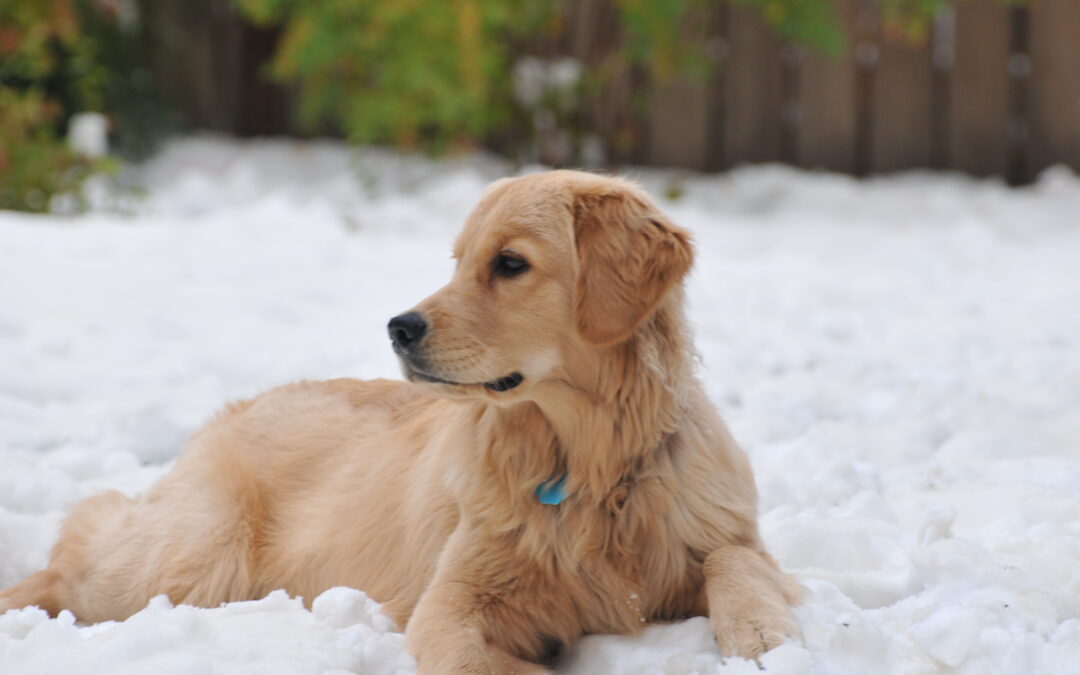No doubt you are ready or are at least thinking about getting you and your family ready for winter. Have you considered your four-legged family members? Cats, dogs, horses, bunnies, and other indoor/outdoor pets are also at risk for cold-weather complications. It is important to make sure your pets are healthy so you can take the necessary precautions if they require extra care during colder months. If your pet is overdue for an exam now is a great time to schedule it.
Pets with arthritis or dysplasia are at higher risk of worsening their condition in the cold. It can be more uncomfortable for them to move around freely. Not only does it stiffen and tighten their joints, but it can also be a problem if it is icy or slippery outside. They are more susceptible to injury if they slip and fall. Pets with medical conditions like diabetes or Cushing’s disease are also at higher risk because they cannot always regulate their own body temperature. I assure you, their hair or fur alone, will not suffice in protecting them from the cold. Frostbite and hypothermia affect pets too.
When you exercise or play with your pets in the cold or snow it is always a good idea to adjust your routine a bit. If your pet will tolerate it, it can be helpful to dress them in a sweater or coat to help keep body temperature controlled. Watch for shivering or shaking as most pets will NOT tell you they are cold. Check paws and noses when you come inside for cracking or bleeding. Booties are a good way to help protect their pads. Make sure to wipe down your pet when they come in and offer a warm place to dry out. If your pet never comes inside (ie. horses, cows, bunnies, etc…) provide them with sufficient cover and a warm dry place to sleep that will protect them from the elements.
Animals burn more calories in the winter because their bodies are working harder to stay warm. It is not a bad idea to discuss changes in feeding with your veterinarian. A little extra food or an adjustment in diet can help replenish some of those lost calories during the long colder months. Water is also a big deal when the temperature drops. If your pet is outside, it is imperative that they have access to fresh water daily. Heated troughs and dishes or tank heaters can help with that.
Make life easier for you and your pets this winter and keep them inside when you can. Schedule that vet appointment to discuss medical conditions and diet. Take the necessary steps to ensure your outdoor animals have fresh water and a warm dry place to sleep. Use those sweaters and booties if you have them and check your fur baby when they come in from outdoors. Remember, a good once over can save you money, unwanted stress, and a trip to the vet. Stay well my Friends!
It’s all about the love…Mama T
https://www.avma.org/resources-tools/pet-owners/petcare/cold-weather-animal-safety


Recent Comments